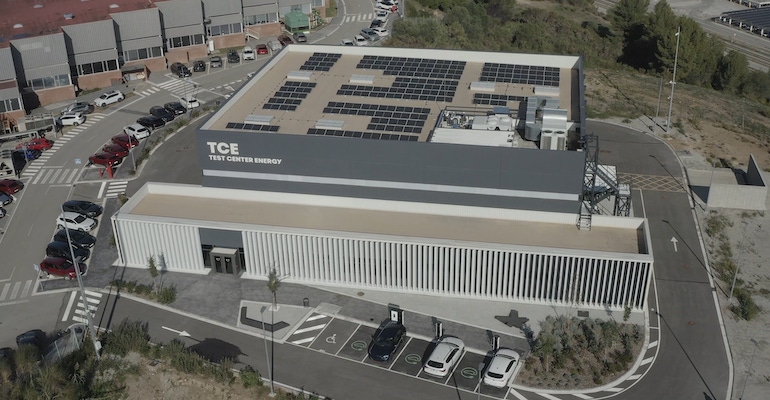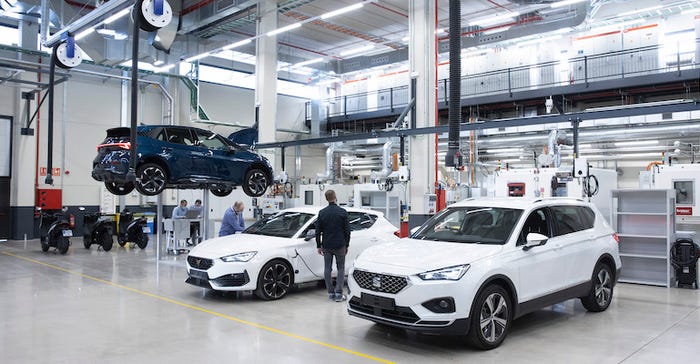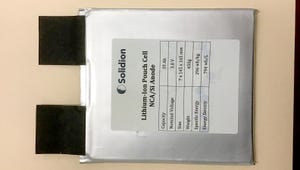European Battery Research Center for EVs and Plug-in Hybrids
SEAT, part of the Volkswagen Group, has opened a battery test center at the company’s technical center in Spain.
February 11, 2022

SEAT S.A. is a member of the Volkswagen Group and is the only company that designs, develops, manufactures, and markets cars in Spain. SEAT exports more than 80 percent of its vehicles and has a sales presence in 75 countries. As with the other Volkswagen-related brands, SEAT has begun a string push to electrification of its product lineup.
To that end, at the end of 2021, SEAT announced the opening of its Test Center Energy (TCE), located at the carmaker's Technical Centre in Martorell, Spain to develop and test the performance of energy systems for electric and hybrid vehicles from CUPRA, SEAT and SEAT MÓ, as well as other Volkswagen Group brands.
“This center allows us to position ourselves as a benchmark in the development of solutions for sustainable mobility,” said Josep Bons, Head of Electrical and Electronic Engineering at SEAT S.A. in a company news release.
Here are some takeaways from the announcement:
Up to 6,000 analyses per year. The Test Center Energy can perform up to 6,000 complete high-voltage system tests (battery, load, safety) per year. Its 1,500 square meters of floor space are used to develop and test the performance of the power systems of electric and hybrid vehicles for CUPRA, SEAT, and SEAT MÓ, as well as other Volkswagen Group brands. As a result, the center's activities operate 24 hours a day, 365 days a year.
Similar to 350 households at full power. The center’s testing capacity of 1.3 megawatts is what 350 households would consume with all their devices connected at the same time or the equivalent of more than 100,000 mobile phones charging at the same time.
5 test benches and 5 climatic chambers reproduce all kinds of situations a battery could face, including fast and slow driving simulations, different slopes or road surfaces, and also different weather conditions.
Climatic chambers can range from -25ºC to +55ºC to expose batteries to extreme temperatures ranges. Testing verifies that the batteries will work perfectly in hot areas such as Mexico, as well as in cold countries like Sweden, where temperatures easily drop to well below zero degrees in winter.
Each battery is tested an average of 17,500 hours and includes multiple charge and discharge cycles at different temperature profiles. Batteries are not only analyzed individually but also after they’ve been integrated into the vehicles and a total of 900 static tests and 2,500 dynamic tests can be carried out for a single project.
120 solar panels. The Test Center Energy represents a commitment to sustainability and thanks to the systems used to build it, it has obtained LEED® certification as a leading facility in energy efficiency and sustainable design. The 120 solar panels on its roof save 39 tonnes of CO2 per month. In addition, its indoor temperature is self-regulating thanks to 95 dynamic blinds on its facade that move to make efficient use of outside light.

According to SEAT S.A., “The pioneering TCE forms part of the Volkswagen Group’s global R&D network and is the Group’s first such center in Europe outside Germany, alongside those in China and the United States. The TCE represents a further step in the company's electrification strategy and is intended to become a key element of SEAT S.A.'s project to lead the electrification of the Spanish automotive industry.” The TCE is part of the 5 billion Euro investment plan announced by the company to electrify its vehicles and facilities.
Kevin Clemens is a Senior Editor with Battery Technology.
About the Author(s)
You May Also Like





